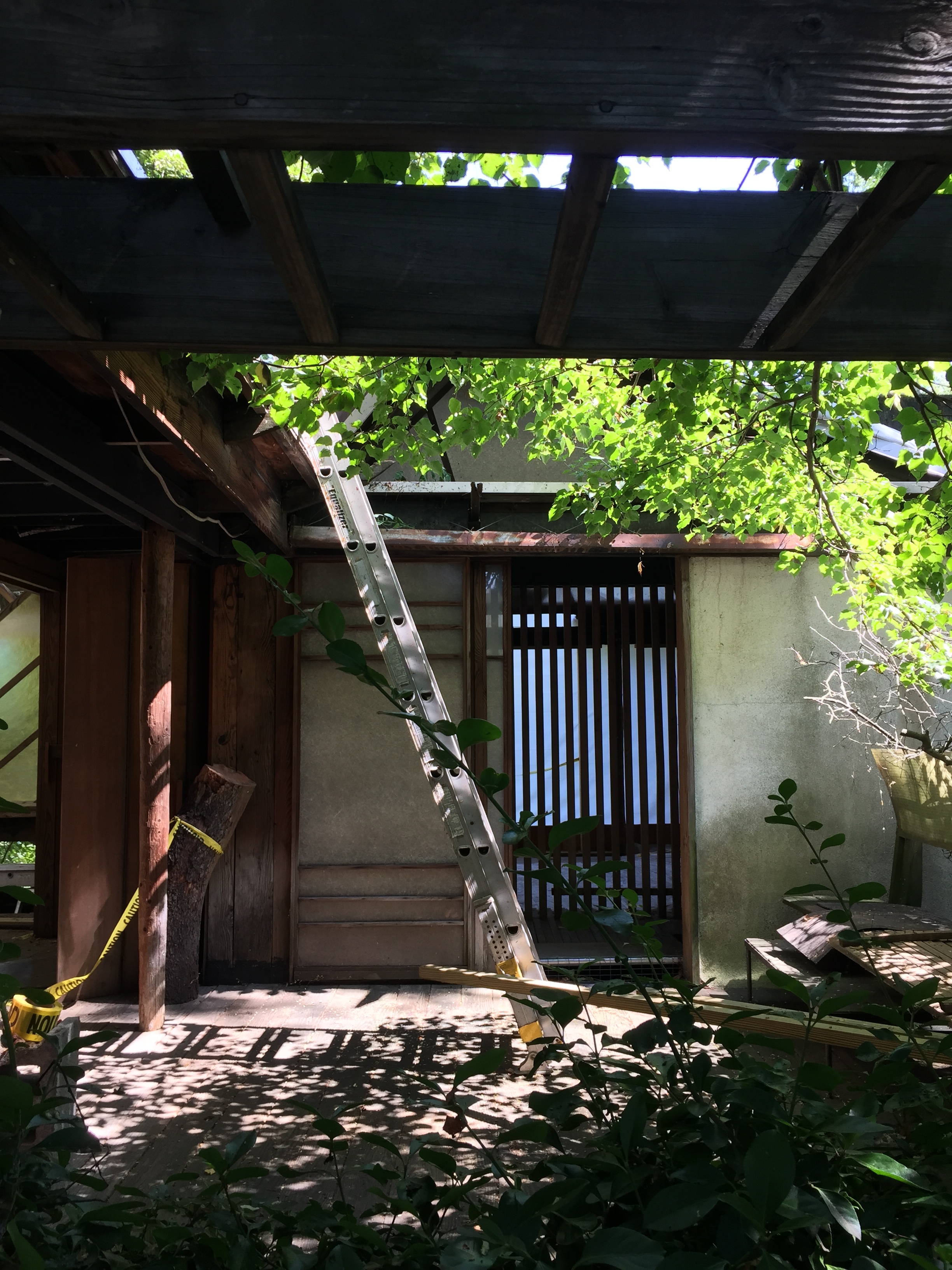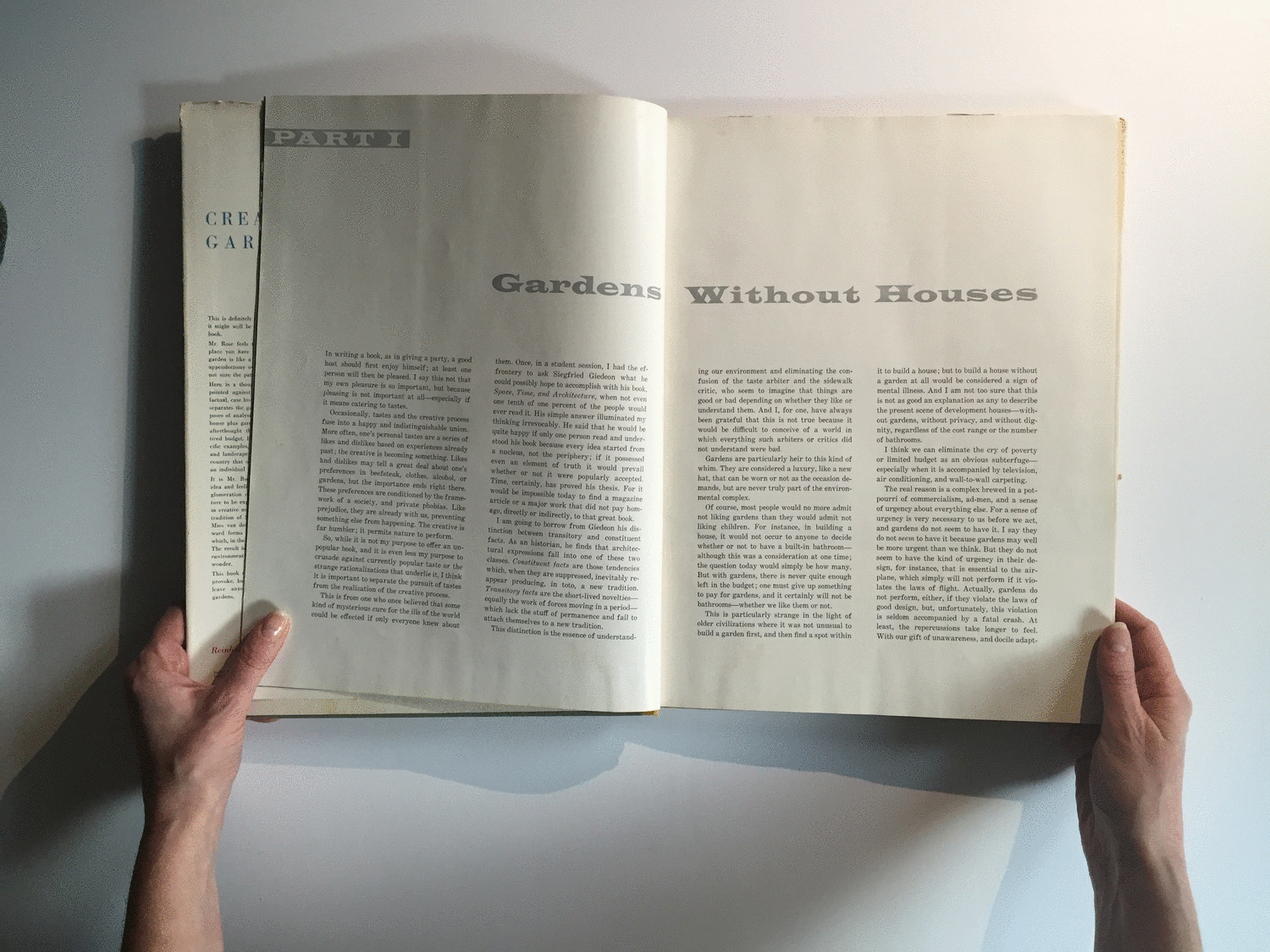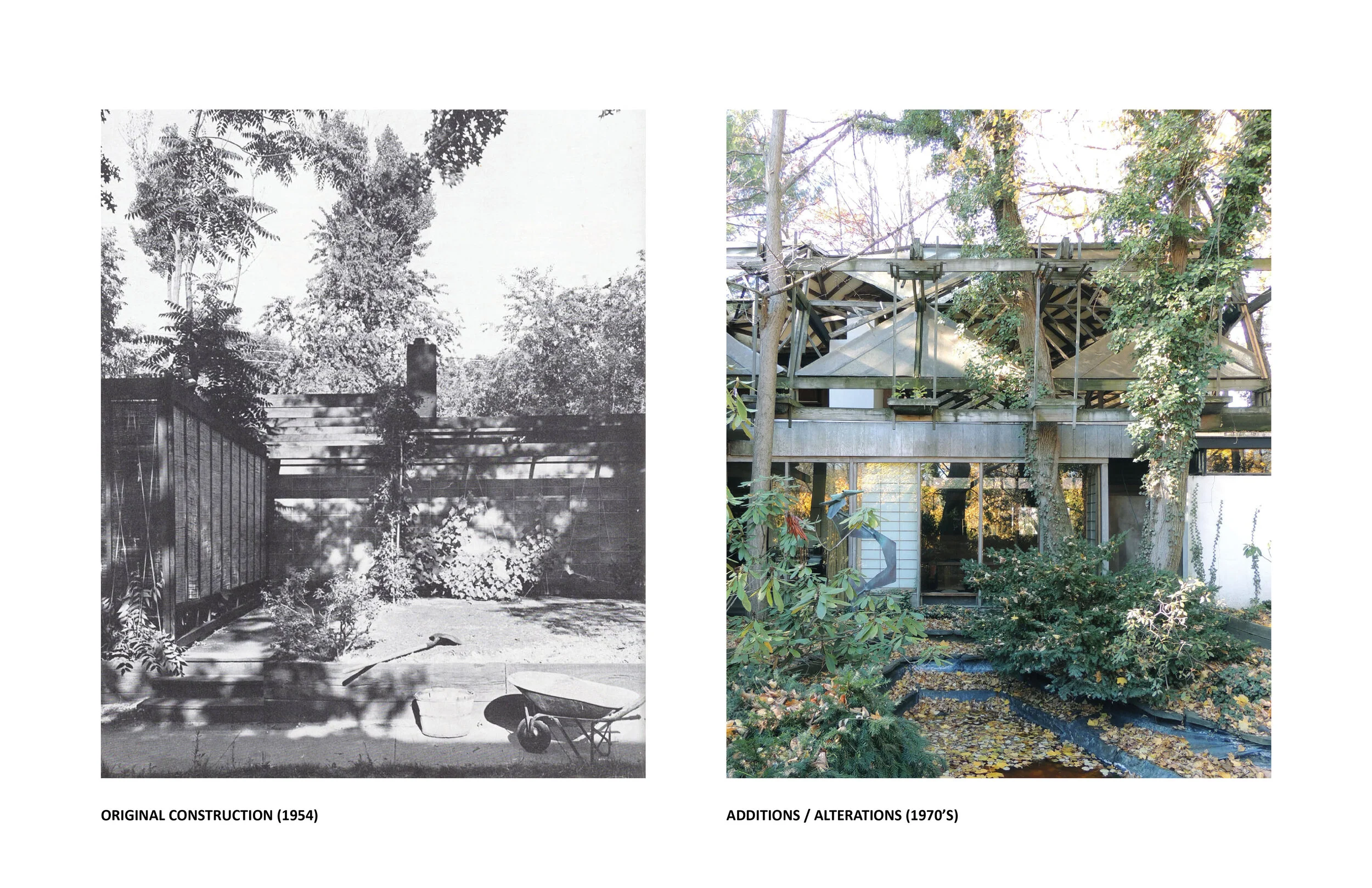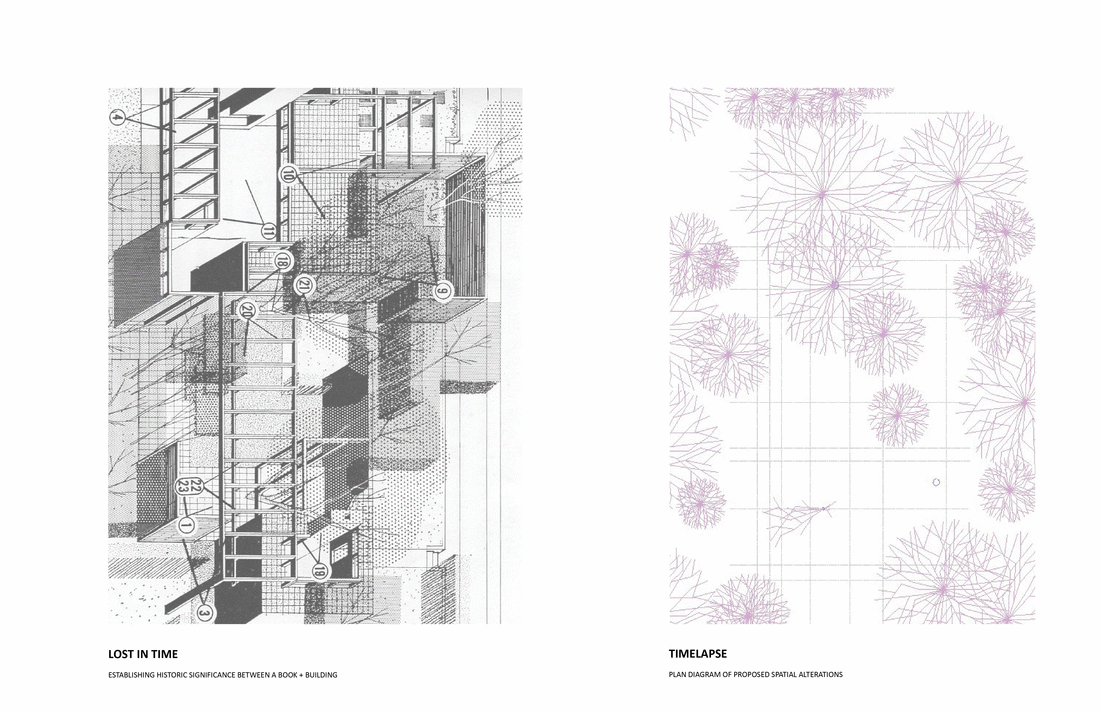REMAKING A METAMORPHOSIS
JAMES C. ROSE CENTER FOR LANDSCAPE ARCHITECTURE RIDGEWOOD, NJ
This research and design project takes on the challenge of repairing a landmarked house/garden complex deemed “historic” because it was designed to change over time. The preservation exercise foregrounds the paradoxes of permanence and memory, asking: how to preserve change itself? It was designed in 1954 by James Rose, a key figure in modern landscape architecture, as his own suburban home and a critique of the post-war American Dream. A 50-year work-in-progress, it began as three interconnected house/garden living areas integrated with a continuous garden environment. After a series of minor alterations, an extensive addition during the 1970’s, featuring a rooftop garden and “Zendo” structure, overlaid onto the original orthodox Modernism a layer of Counter-culture experimentalism. Considered to be Rose’s masterwork, the project was left unfinished in a state of decay. Due to decades of weathering/neglect, and recently severe damage from a fallen tree, it is now endangered. As a theorist of modern landscape, Rose also produced a significant body of published (but out-of-print) writings which we researching to establish guiding principles to address the preservation challenge is how to work on an object theorized, designed, and built as a metamorphosis. The scope of work for Phase 1 includes documentation/analysis of existing conditions, emergency structural stabilization, and repairs to the roof garden. Phase 2 includes the reconstruction of the Zendo and the creation of a masterplan for entire site. New design interventions aim to make strategic alterations to the building to improve public access and site interpretation. Small, but significant, changes will open up liminal spaces between the various phases of construction and use, producing a more simultaneous perception of time.





